Feelings Matter

Experiencing the Feeling of Charming
Charming isn’t just about impressing others, it’s about the quality of connection that emerges when joy, curiosity, and ease are shared in real time. It’s a social emotion, but also an internal one. When someone feels charming, they’re often in flow, responding with authenticity, openness, and presence. This sense of being charming can feel energizing and playful, particularly in conversations where mutual delight builds and circulates between people.

Experiencing the Feeling of Fury
Fury is a powerful emotional signal that something in your life feels uncontrollable or unacceptable. It often arises from a sense of helplessness or frustration when you can’t influence a situation. Although furious feelings are challenging and uncomfortable, they can also serve as catalysts for growth and deeper self-understanding.
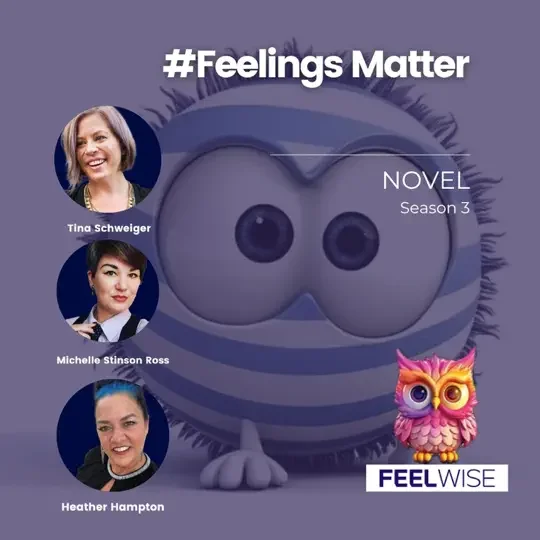
Experiencing the Feeling of Novel
Novelty is one of the most life-affirming feelings we can experience, but it’s also one of the most overlooked. As adults, our routines and responsibilities can narrow our sense of discovery. Yet, the emotion of novel is crucial for creativity, empathy, and resilience. It reminds us that the world still holds surprises and that we’re still capable of wonder. When we allow ourselves to notice and embrace novelty, we reawaken parts of ourselves that might have gone quiet.

Experiencing the Feeling of Sorrowful
Sorrow is not always easy to talk about. It often lives in silence beneath loud grief or behind a quiet sadness. For some, sorrow is tied to depression, showing up as a heavy, lingering ache that slows everything down. For others, it comes in moments of loss or disappointment. It isn’t necessarily despair, but it still takes up space in a very real way. It's not just about what’s happening around you, but how that experience lands in your body and spirit.
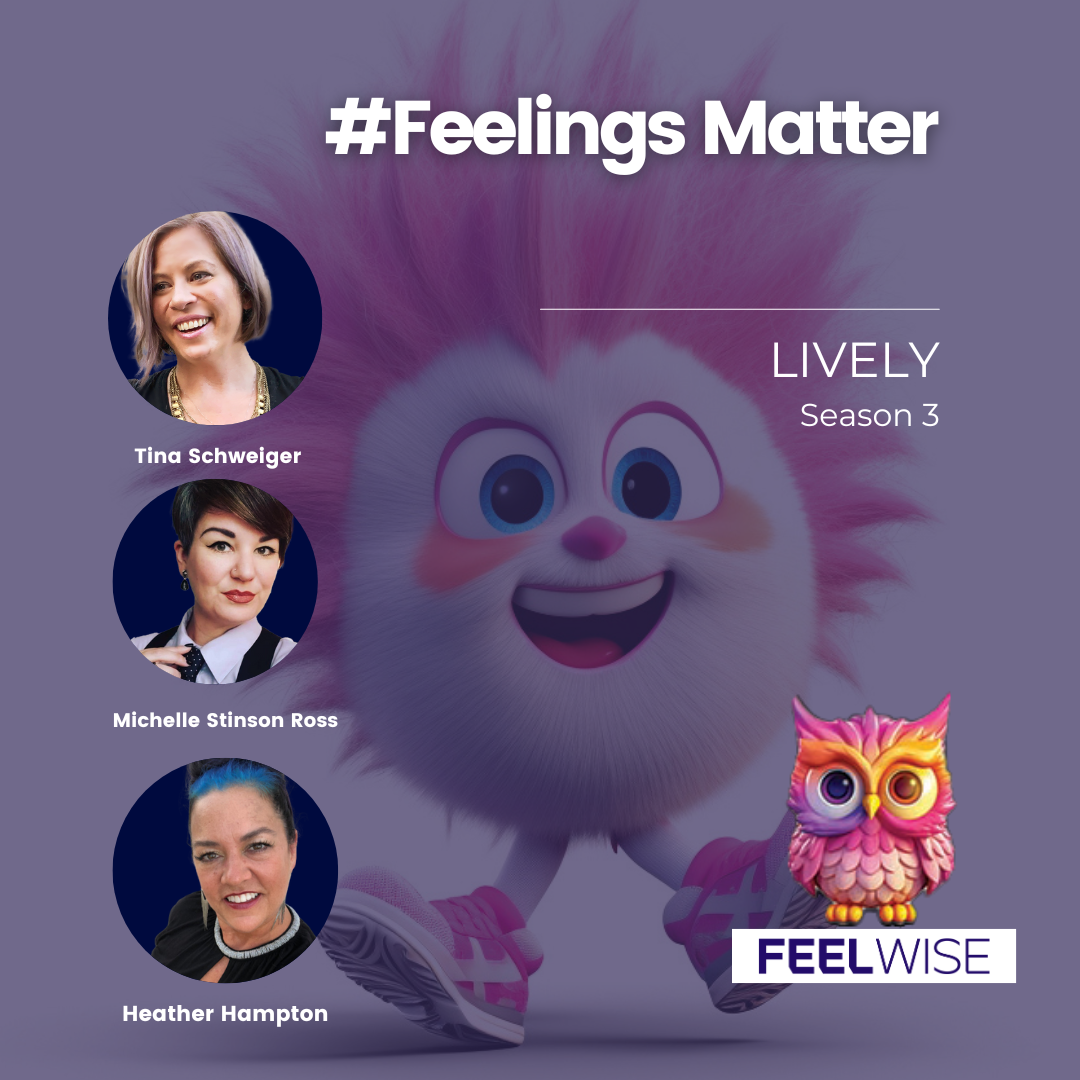
Experiencing the Feeling of Lively
Aversion can be subtle or immediate. It may begin as a quiet discomfort and quickly build into a strong desire to escape a situation or stimulus. Sometimes it protects from real harm, like avoiding spoiled food or overwhelming noise. Other times, aversion can become automatic, linked to past experiences or ingrained responses that no longer serve. Recognizing when it is a signal of safety versus when it limits connection or growth is a powerful emotional skill.
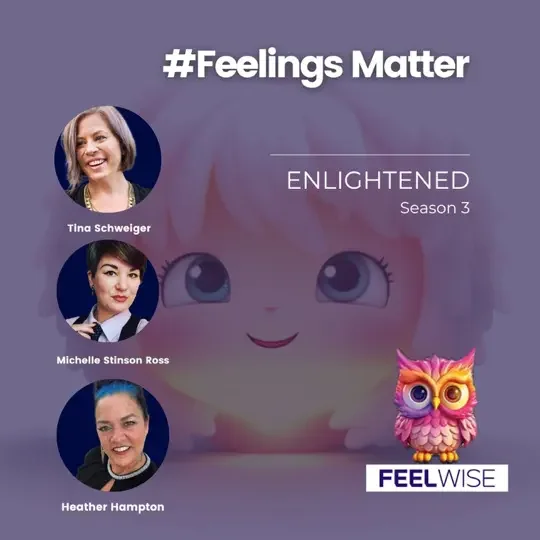
Experiencing the Feeling of Enlightened
Enlightenment doesn’t always come from learning something new. Often, it’s the moment when multiple things you already know suddenly connect in a way you’ve never thought about before. It’s powerful, memorable, and often feels both surprising and inevitable — like something deep inside you has just clicked into place.
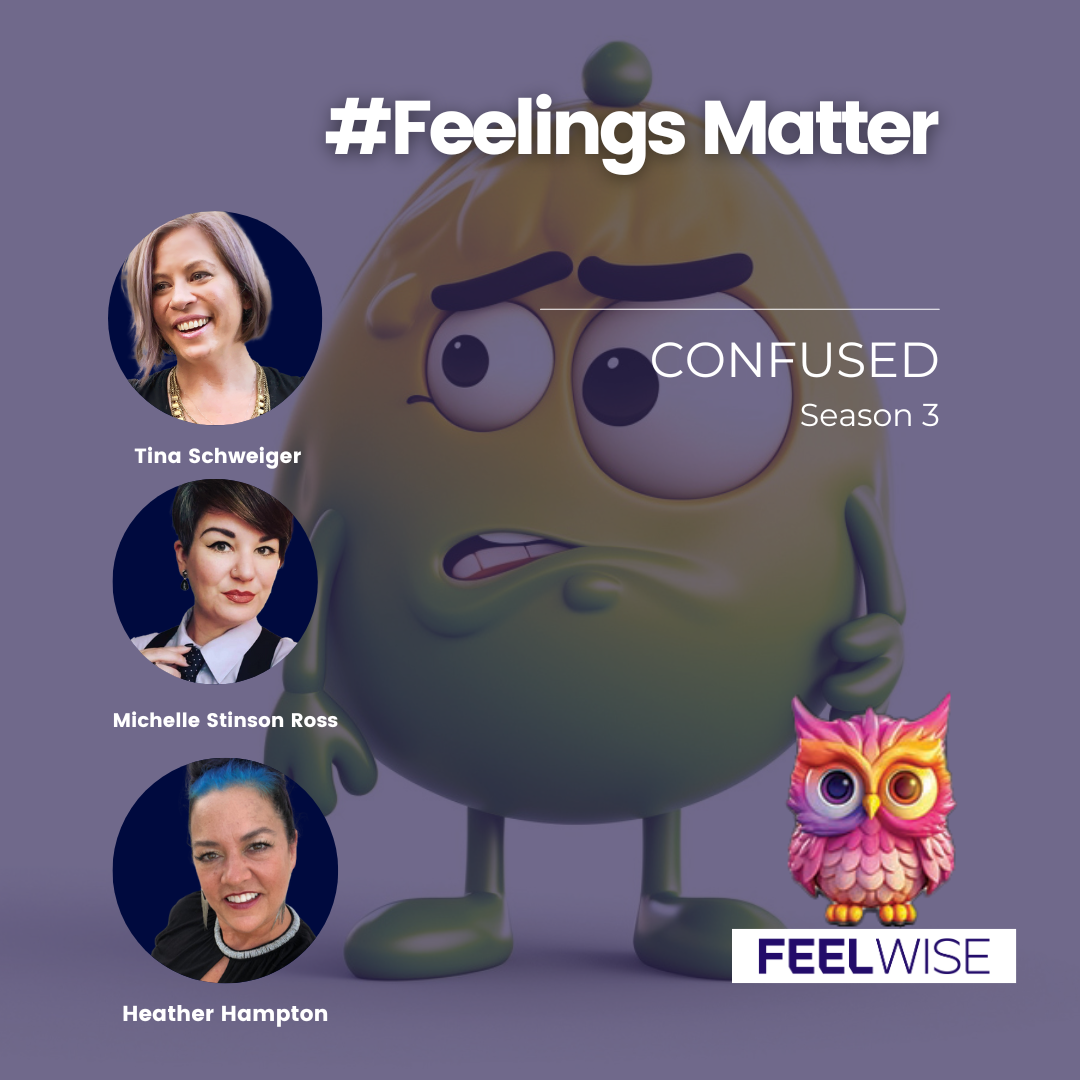
Experiencing the Feeling of Confused
Aversion can be subtle or immediate. It may begin as a quiet discomfort and quickly build into a strong desire to escape a situation or stimulus. Sometimes it protects from real harm, like avoiding spoiled food or overwhelming noise. Other times, aversion can become automatic, linked to past experiences or ingrained responses that no longer serve. Recognizing when it is a signal of safety versus when it limits connection or growth is a powerful emotional skill.
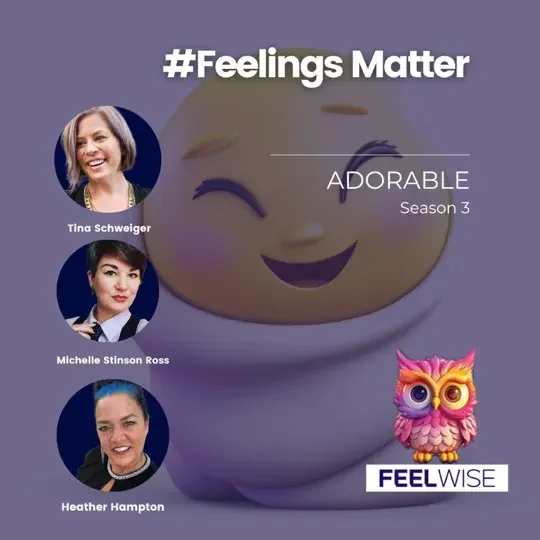
Experiencing the Feeling of Adorable
Adorable might seem like a “light” feeling, but its impact can be surprisingly deep. It connects people through shared delight, often softening even the hardest days. Whether it’s sparked by the clumsy joy of a puppy or the tiny detail of someone’s thoughtful act, it’s a reminder that we are wired for connection.
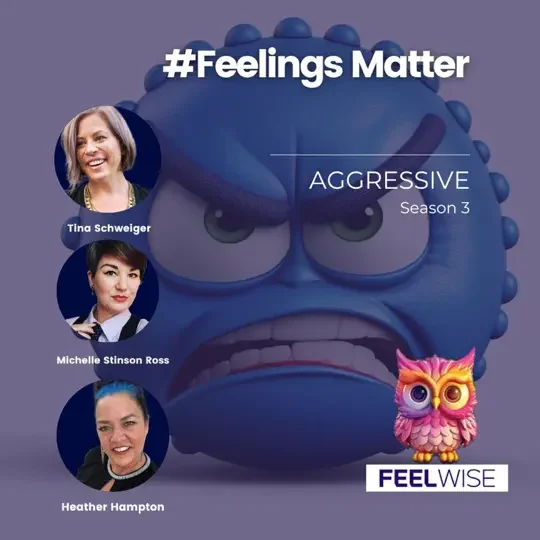
Experiencing the Feeling of Aggression
Aggression is often misunderstood as a purely destructive force, but it is actually a signal that something matters deeply. It can surface quickly in daily life—during stressful moments in traffic, disagreements with loved ones, or when personal boundaries feel violated. For many, aggression emerges not from a desire to harm, but from a need to be heard, to feel safe, or to regain a sense of control. It is an emotional flare that asks to be noticed and understood.
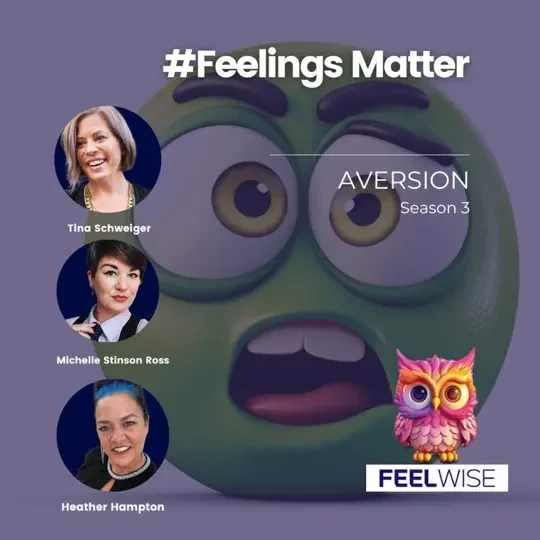
Experiencing the Feeling of Aversion
Aversion can be subtle or immediate. It may begin as a quiet discomfort and quickly build into a strong desire to escape a situation or stimulus. Sometimes it protects from real harm, like avoiding spoiled food or overwhelming noise. Other times, aversion can become automatic, linked to past experiences or ingrained responses that no longer serve. Recognizing when it is a signal of safety versus when it limits connection or growth is a powerful emotional skill.
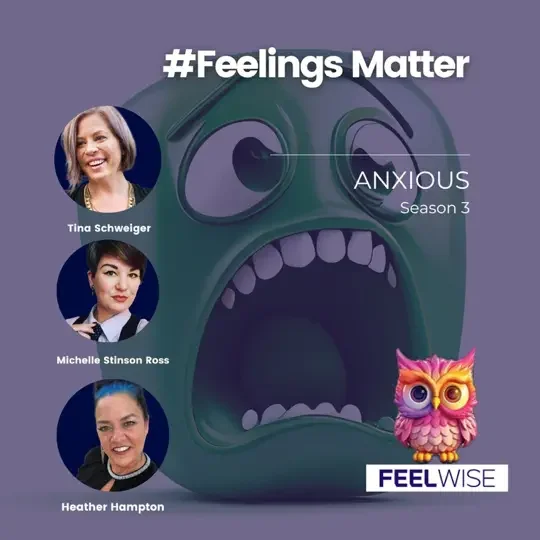
Experiencing the Feeling of Anxious
Anxiety is often grouped with stress or fear, but it has its own unique shape and rhythm. It can appear as a quiet undercurrent, a lingering sense that something might go wrong even when everything seems calm on the surface. It often shows up in the body first, with sensations like a heavy chest, unease, or sudden waves of panic. Sometimes it is tied to a specific situation. Other times, it arrives without warning, as if the nervous system remembers something the mind has not yet realized.
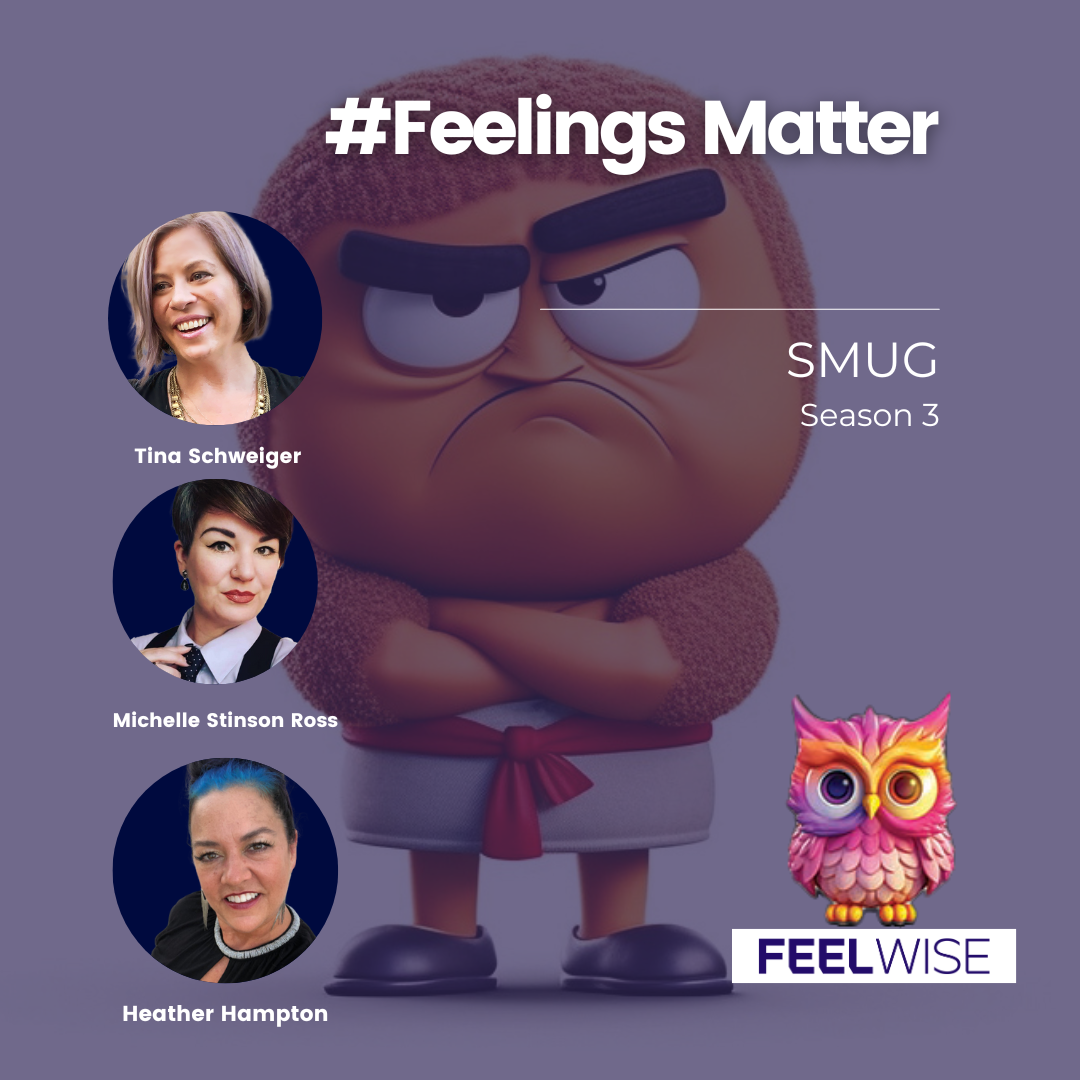
Experiencing the Feeling of Smug
Smugness can be surprisingly complex. At first glance, it seems self-contained, a puffed-up moment of personal victory. But as the hosts of Feelings Matter reflect, it often masks more vulnerable emotions underneath. Sometimes it’s a defensive reaction to past invalidation or chronic dismissal. Other times, it's a sign that we’re unconsciously slipping into judgment or superiority over others.
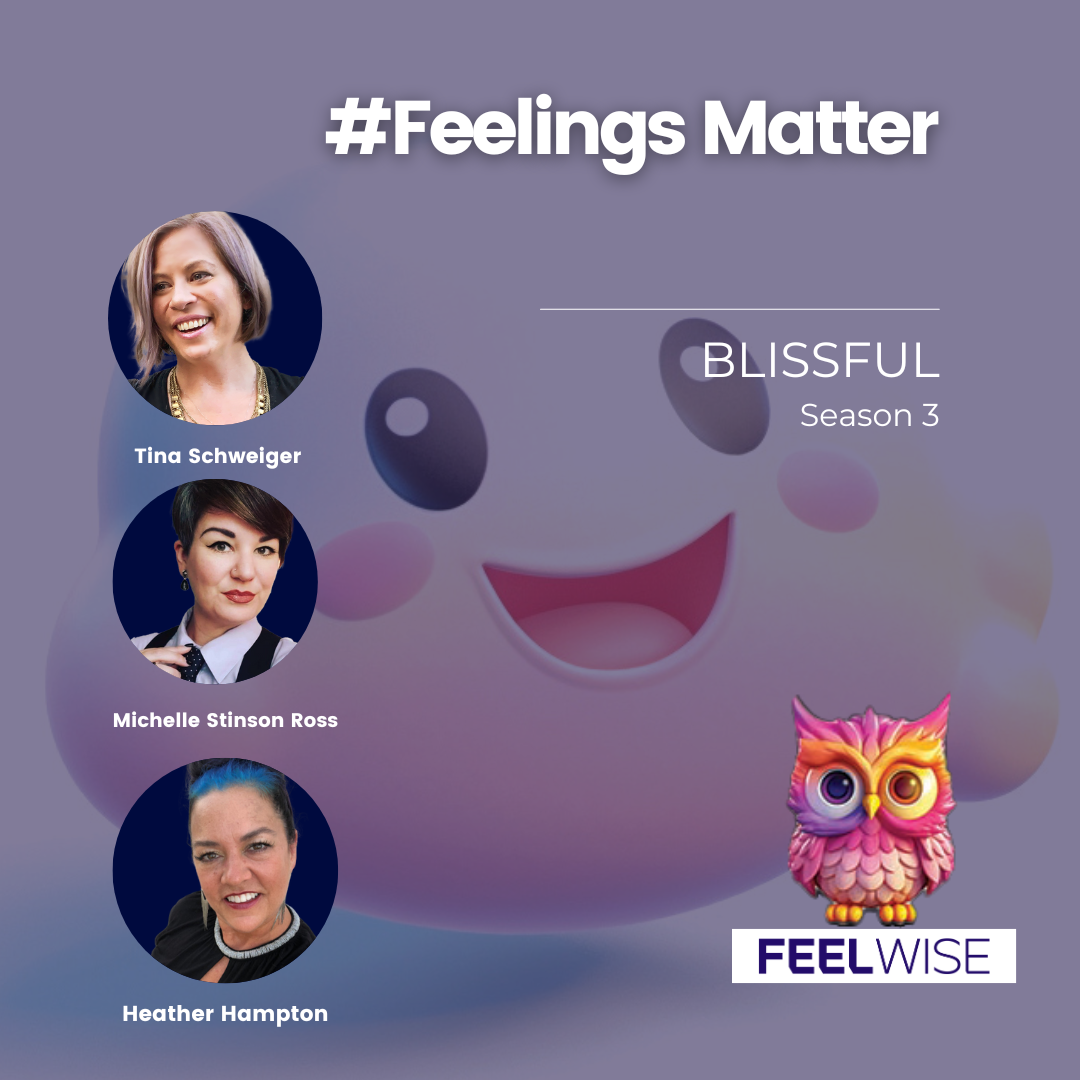
Experiencing the Feeling of Bliss
Bliss often defies definition, and yet we know it when we feel it. In the episode, the team reflects on bliss not as an ecstatic high, but as a peaceful joy that feels settled, soft, and safe. It’s the quiet warmth of being present in a moment that doesn’t need to be improved. One of the key ideas the hosts share is that bliss is something you can’t chase, it arrives when you create space for it. That distinction is powerful. Instead of striving, bliss asks for surrender.

Experiencing the Feeling of Embarrassed
The episode dives into what embarrassment really feels like, emphasizing that it’s more than just a fleeting awkward moment, it's a full-body experience. The hosts describe sensations like hot cheeks, a fluttering stomach, and the impulse to freeze or run. This response is the body’s way of signaling social threat our nervous system reacting as if our identity or safety is being questioned. What's interesting is how physical it is, even when the cause is something small, like forgetting what to say or hitting “send” too fast.

Experiencing the Feeling of Apathy
Apathy often isn’t just about not caring, it’s a complex emotional signal that may be rooted in chronic stress, burnout, depression, or even physical illness. One speaker in the episode mentioned how apathy can appear as a “flatness” a lack of emotional highs or lows. This is more than tiredness. It’s the sense that even the things that once inspired you now fail to register. It’s not that you choose not to care; it’s that you can’t seem to summon the energy to care.
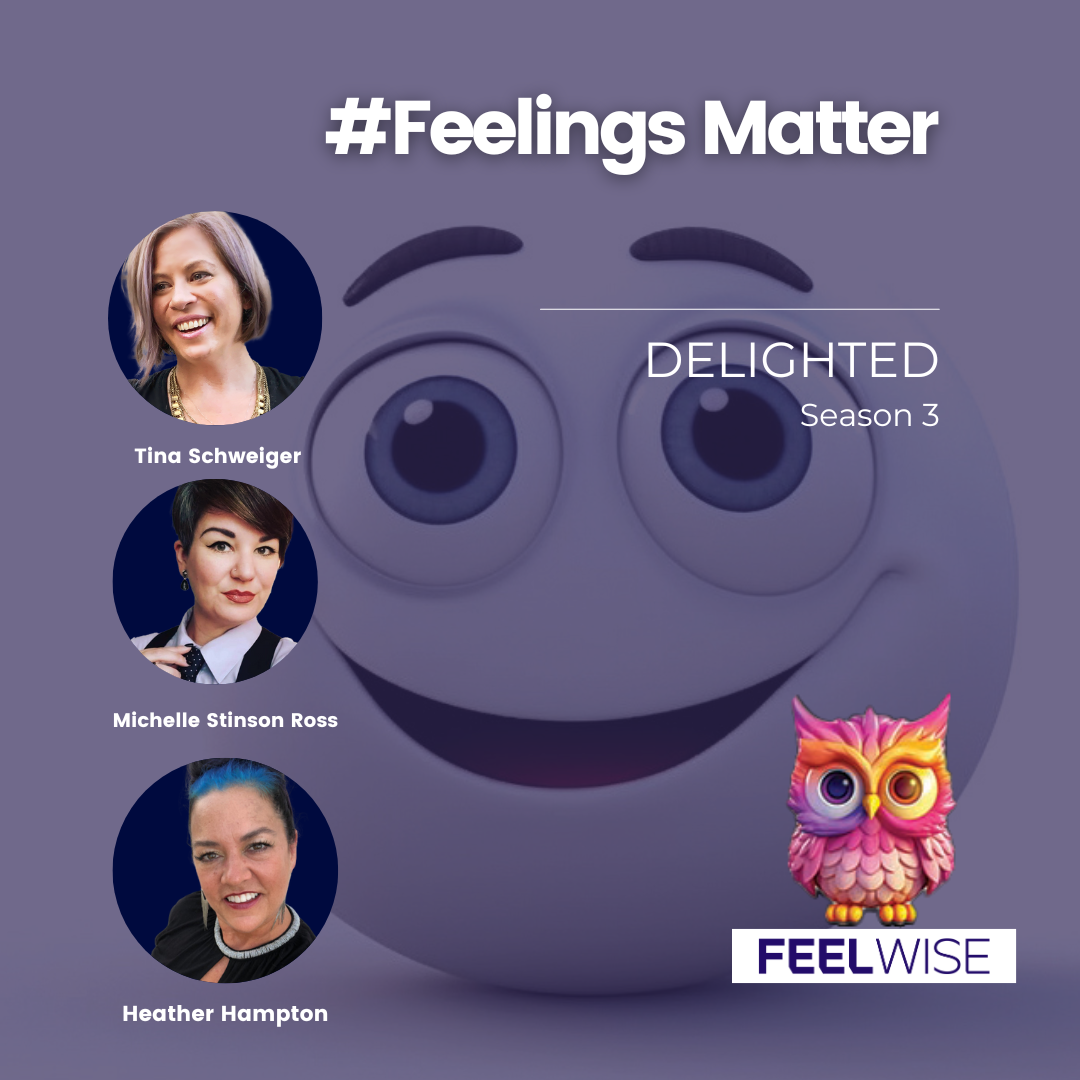
Experiencing the Feeling of Delighted
Delight is one of those feelings that often slips in quietly, catching us off guard with its sparkle. It can appear during the most ordinary moments—a random kind gesture, a humorous thought, a memory that resurfaces unexpectedly. Unlike broader emotions such as joy or happiness, delight is more pinpointed; it springs from something specific and often fleeting. Yet, it leaves a residue of well-being, a reminder that small joys are both accessible and powerful.

Experiencing the Feeling of Craving
Craving is one of the most human experiences—ancient, primal, and often misunderstood. It gets labeled as weakness in some cultures or mistaken for addiction in others. But in truth, craving is a natural response to perceived lack. We crave what we believe will fill a void: comfort, love, excitement, relief. This feeling is not inherently negative—, it’s simply intense. And it begs us not just to notice, but to listen.
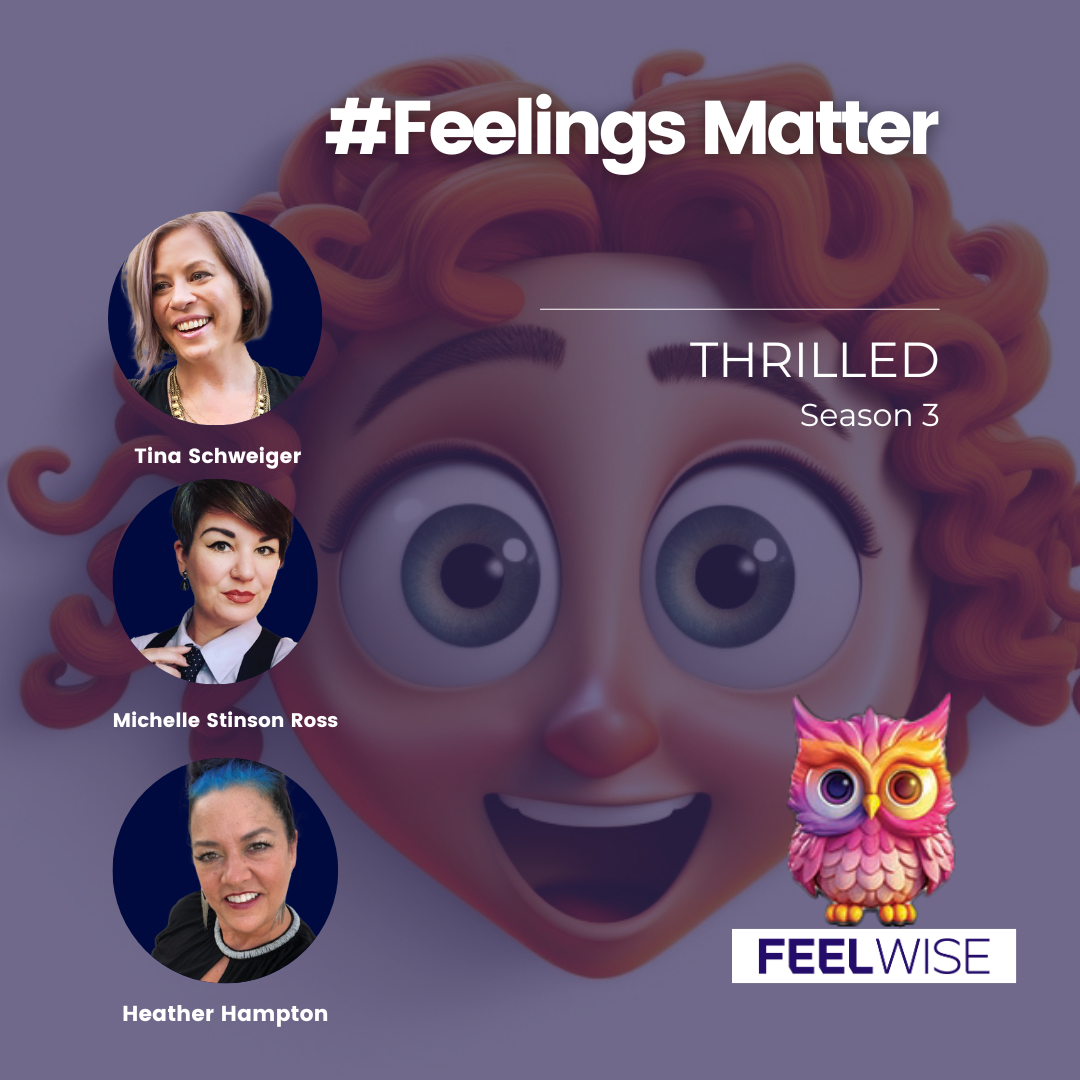
Experiencing the Feeling of Thrilled
There’s something electric about being thrilled. It can arrive uninvited—a spontaneous reaction to an unexpected joy or a moment of connection that catches you off guard. The speakers reflected on how we often use this word casually, even carelessly. Saying “I’d be thrilled to go to the grocery store” strips the word of its power. Thrill is not just joy; it’s intensity. It’s the spark that lights up the mind and body with anticipation, sometimes even without warning.
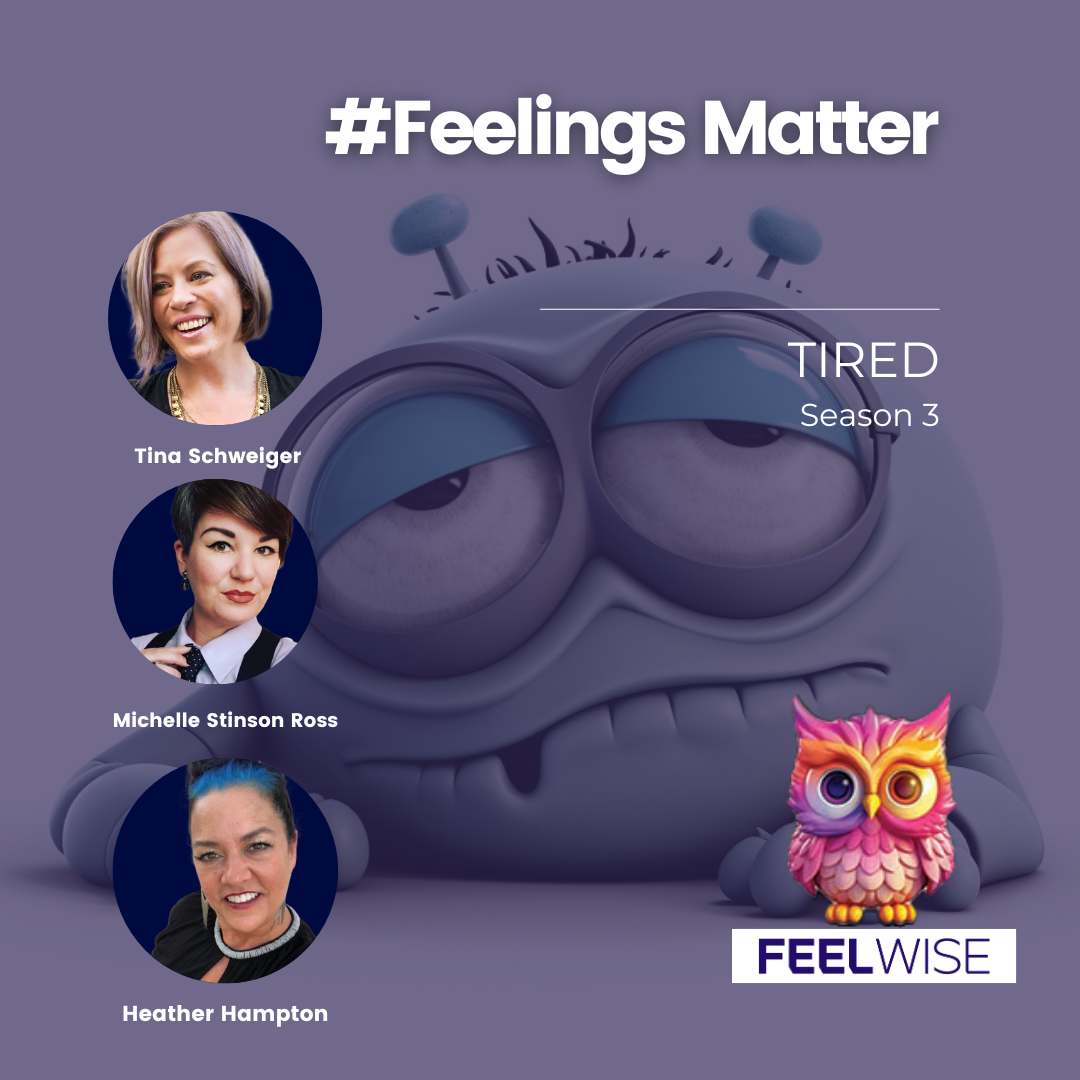
Experiencing the Feeling of Tired
Feeling tired, especially on an emotional level, is often overlooked because it doesn’t always come with visible symptoms. It’s not as simple as yawning or needing a nap—it’s the sense that even when the world is quiet, your inner self remains noisy, strained, or heavy. One of the most confusing aspects is how it can persist even after rest. That’s when you realize it isn’t about sleep—it’s about soul-weariness, the kind that comes from overextending yourself emotionally or holding too much for too long.
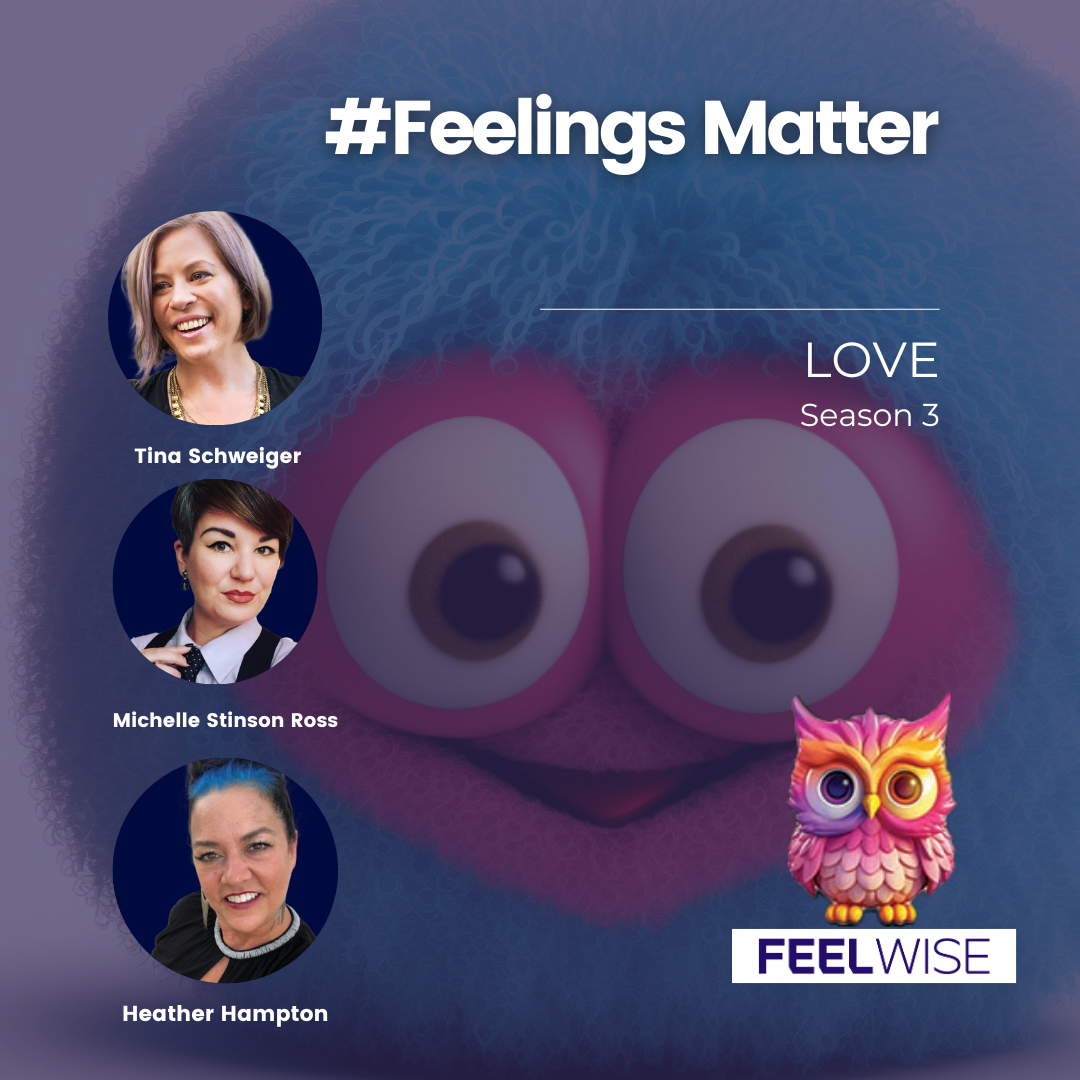
Experiencing the Feeling of Love
Love is a word we use often, sometimes too casually but when we slow down and truly feel into it, love reveals itself as one of the most layered and dynamic emotions we experience. It can feel euphoric, grounding, heartbreaking, and healing—all within the same breath. Unlike the fleeting highs of infatuation or attraction, love asks us to stay. To choose. To participate. It’s not just something that happens to us; it’s something we cultivate, especially over time.

